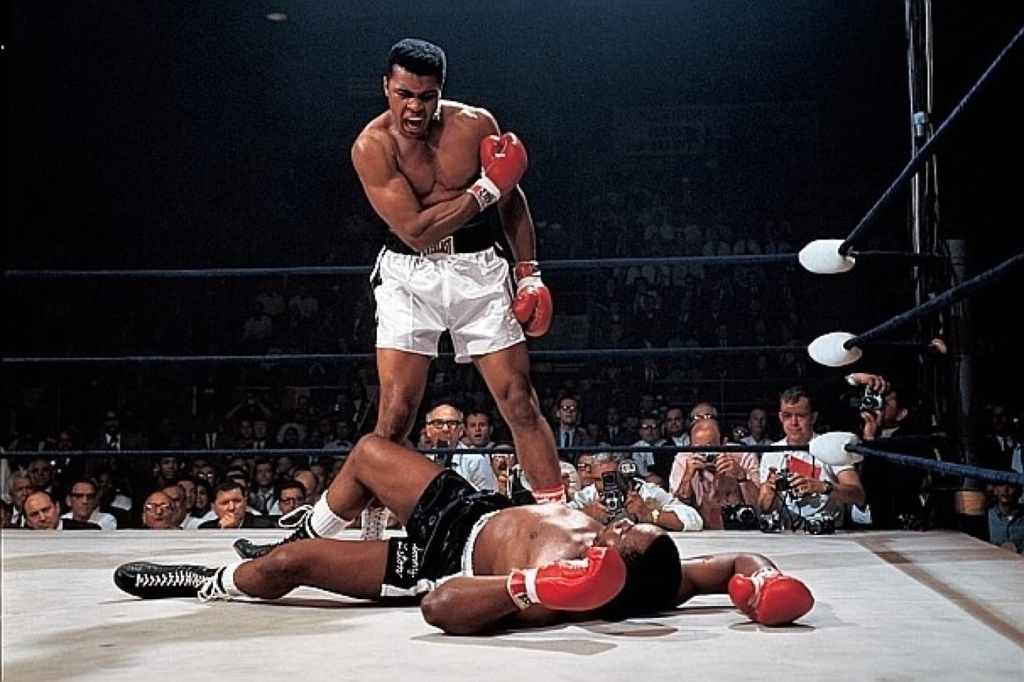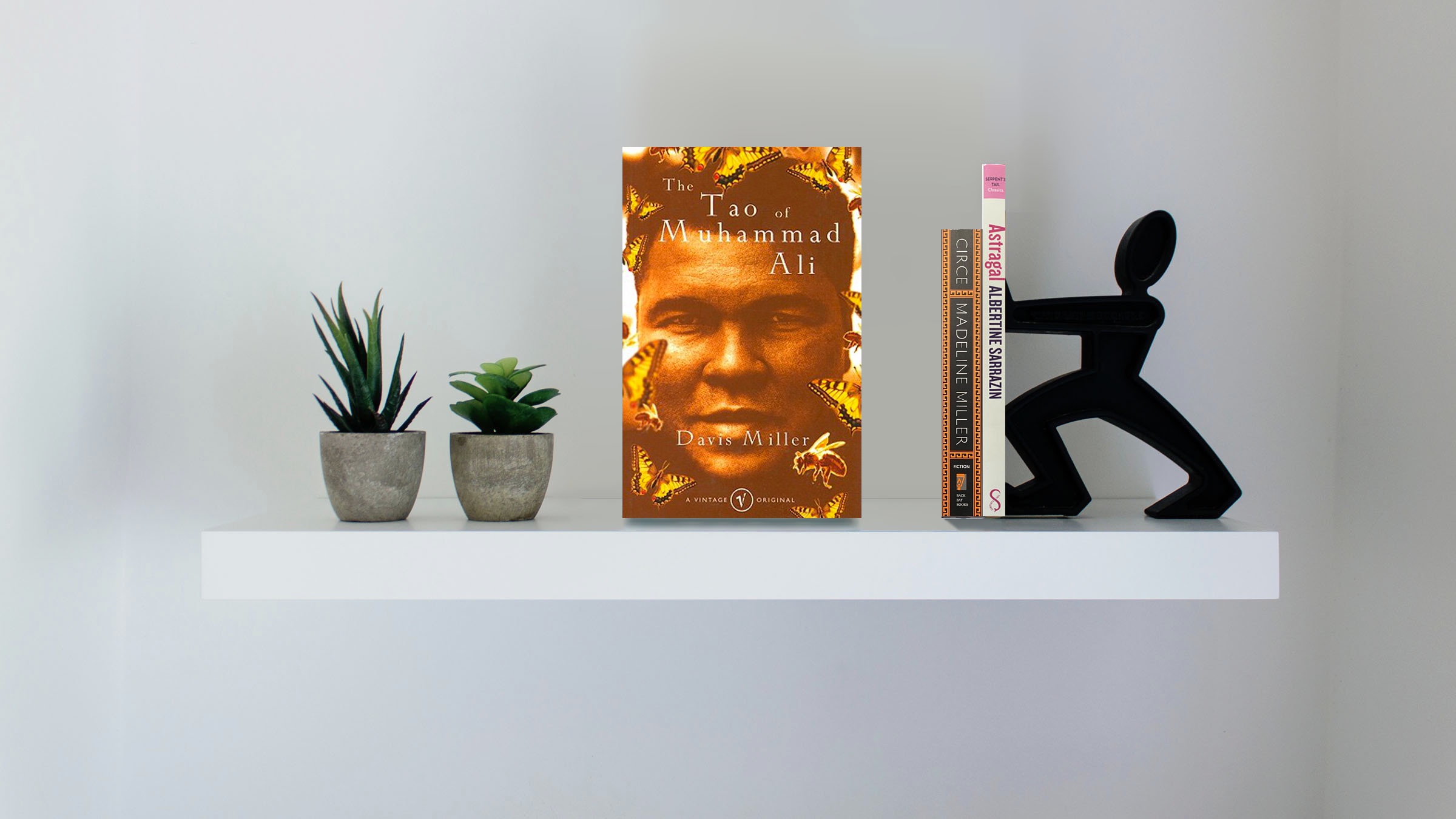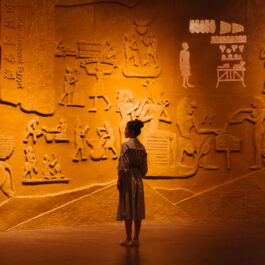Each month, American Express Essentials highlights one definitive literary work, old or new, and across any and all genres. The only determinant is quality: a book that makes life more vivid, more inspiring – a gifted piece of work you want to share. An absolute must-read.
Up this month is Davis Miller’s The Tao of Muhammad Ali, an inspiring and intimate semi-autobiographical account of its penman’s admiration for, and real-life friendship with, the world-class boxing champion.
The first thing that leaps from the page when reading Davis Miller’s The Tao of Muhammad Ali is how much he truly admires Ali.
Of course many people, particularly those who grew up watching Ali’s fights live in the ‘60s and ‘70s, can probably relate. He remains, after all, “The Greatest Athlete Of All Time”, a boxer whose grace and talent will never be forgotten – and may never be seen again. It’s understandable to admire him. It’s natural, almost expected. Yet Miller’s admiration goes beyond that. He doesn’t just hold Ali, the athlete, on a pedestal, but Ali, the man, as well. And that is what this book is about: an incredible man.
If you’re looking for a tell-all with statistics and details about Ali’s fights, this is not the book for you (and you’re probably better off rewatching them anyway). The pages within Miller’s book are a much more personal account of his relationship with a charismatic, dignified man who, even after his biggest glory days were over and he was struggling with Parkinson’s disease, remained loyal to himself and to his fans. If you’re searching for a book about a star, look elsewhere; if you want to read the story of a remarkable human spirit, you’ve hit the jackpot. One could even go as to say that this is a book about life itself, rather than a book about boxing.

[Photo: Slavin3232/Wikimedia Commons]
An exciting find for anyone curious about the life and character of one of the most famous people in modern history, Miller’s tale offers unique insight into the everyday life of a legend, as well as the impact he had on one fan in particular – from the moment Miller met the boxer then known as Cassius Clay: “Clay had recently turned twenty-two, and heat rose shimmering around his sleek, hard body as he prepared to meet Sonny Liston for the world heavyweight championship. […] Since then, many of the events that have defined my life have been related to Ali.” Readers will be hard-pressed to find a writer who treats his subject with more grace and respect than Miller.
Ali is of course as interesting a character as it gets, but just as interesting is the person who writes about him. The Tao of Muhammad Ali is as much about Ali as it is about Davis Miller himself: one can’t really take one out of the other. Miller is there for many of Ali’s moments big and small – performing magic tricks, rewatching his old fights on the couch, playing practical jokes, spending time with his family, signing autographs. But he also witnesses some of the legend’s biggest losses.
Of watching one of the few time’s Ali ever lost a fight, Miller said: “The bell rang for Round One. The Man who had never missed a punch was suddenly missing them all. The Man who was always so full of himself was suddenly empty. After the second round, I couldn’t watch any longer.”
Miller’s tale goes to some dark places in the life of Ali, but this is far from a cautionary tale about meeting one’s heroes: it’s a study of a man still willing – and daring – to endure.
You don’t need to know much about Ali, or even be a sports fan, to enjoy this book and to appreciate its subject. You won’t connect with him because of what he accomplished, but rather because of who he was as a person and what he represents. Miller depicts an athlete facing a degenerative disease, but who never takes pity on himself. And neither does the writer: “I don’t feel bad for him. Muhammad Ali is not the first artist to have suffered for, or because of, his art and beliefs. One of the first things you notice when spending time with him is how quickly you forget about his malady.”
Miller’s book contradicts the usual accounts of The Greatest – writing so often centred on his affliction – in that it does its absolute best not to limit him. Instead, Miller amplifies Ali and his life. Which, as the legend he is, one would think wasn’t even possible.
Explore Further: What To Read & Watch
If you turn the last page and find yourself hungry for more, consider watching the documentary film When We Were Kings to better understand the essence of Muhammad Ali at his peak. Alternatively, if you’re keen to delve further into the world of boxing, we recommend checking out Norman Mailer’s classic book The Fight.














Sorry, the comment form is closed at this time.